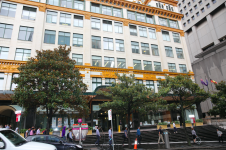Do Criminal Cases Take Too Long?

It’s no secret that court processes are often lengthy and expensive, and if you wish to plead ‘not guilty’ to a criminal offence it can be many months or even a year or two before your matter is set down for a defended hearing or jury trial.
Police often take a “shoot first and ask questions later approach”. This means that they often charge people with criminal offences based upon shaky evidence, such as an unsupported accusation, and then take months to build a case against them. NSW Police can do this because they merely need a “reasonable suspicion” to charge someone with a crime, rather than any solid evidence.
Even if you’ve managed to secure a good criminal lawyer who is willing to fight for you, it could still take months for the charges to be dropped or downgraded.
Charges are often withdrawn where police have laid them incorrectly, or upon shaky evidence, or where the defendant has a valid legal defence. Serious cases will frequently be taken over from police by the Office of the Director of Public Prosecutions (‘DPP’), who will often see that the charges are unsupported and withdraw them. But by this time, the defendant will have gone through months of stress and anxiety, not to mention expense, even though they may be completely innocent.
South Australia
In South Australia, 18.2% of all criminal cases are withdrawn by the prosecution, compared to 7.9% nationwide.
In a bid to reduce the number of unsupported charges and the resulting court backlog, the South Australian Attorney-General has proposed a major overhaul of criminal procedures in that state, as well as a range of complementary measures.
The proposals are contained in the ‘Transforming Criminal Justice’ Consultation Paper, which was recently released by the South Australian Attorney-General’s department.
What are the reforms?
The Consultation Paper proposes several key reforms, including:
1. Pre-Trial Bail System
Current Procedure
The initial stages of criminal proceedings in South Australia are very similar to New South Wales.
The first time a defendant attends court in relation to a charge (known as the ‘first mention’), they will be asked to enter a plea of guilty or not guilty.
Where they plead not guilty, the matter is generally adjourned for 6 weeks while the police compile all the material they rely upon to support the charge, which is known as the ‘brief of evidence.’
A person is generally charged on the day of their arrest and will usually appear in court for the first mention soon after.
This means that by the first mention date, police will only have carried out a basic investigation – the bulk of the investigation is generally carried out during the 6-week adjournment period as police begin to obtain evidence to support the allegation.
Because of problems and delays with police obtaining evidence, the brief of evidence is often incomplete by the end of the 6-week adjournment period. This means that the case may be adjourned several times before the brief is available, which can take many months or even over a year.
Unsurprisingly, these delays can come at a great emotional and financial cost to the defendant, and also waste court time and resources. The situation can become even more unfair if the defendant has been refused bail and is languishing in prison awaiting the outcome of investigations.
Proposed approach
The SA Attorney-General has proposed a procedure whereby police lay an initial ‘holding charge’ after a person is arrested. It is proposed that police will then determine whether or not that person is granted bail for a period of 6 weeks while the preliminary brief of evidence is prepared. During that time, the matter is referred to the Director of Public Prosecutions (DPP) who will make the final decision at that stage about whether there is enough evidence to press charges.
The case will be discontinued if the DPP is not satisfied after six-weeks that there is enough evidence to press charges. Alternatively, police can apply to a magistrate for a further 6-week adjournment in an attempt to get enough evidence to substantiate the charges. Only one adjournment can be sought by the police.
If the DPP decides that there is enough evidence, the defendant or their defence lawyers will be served with the preliminary brief of evidence to enable them to make a decision about whether they want to plead guilty or not guilty.
Benefits of the proposed approach
It is expected that the recommended approach will reduce delays for at least two reasons.
Firstly, there is likely to be a reduction in the number of shaky cases that end up in court, as the DPP rather than the police will bear ultimate responsibility for determining whether there is sufficient evidence to press charges.
Secondly, the approach imposes strict time limits for service of the brief which will reduce the likelihood of cases dragging on unnecessarily.
2. Defence Response
If charges are pressed, the court will make an order for the prosecution to serve the substantive brief of evidence on the defence. That brief should include all of the evidence that the prosecution intends to rely upon at the hearing or trial.
One of the more controversial aspects of the proposals is the requirement for the defence to submit a detailed response to the substantive brief. That response must include information as to the defence position at trial, any defences that they wish to raise, applications to call prosecution witnesses and expert witnesses and so on.
The measures are designed to prevent the use of ‘ambushing defences at trial’ where the defence has not previously stated its intention to raise a particular defence. The move has been criticised for undermining the presumption of innocence and right to silence, which say that the prosecution bears the onus of proving its case beyond reasonable doubt and the defendant does not have to disclose anything until and unless he or she wishes to do so.
Civil libertarians have cautioned that this may result in a situation where the defence is essentially helping the prosecution by providing them with all their evidence. It is also argued that defendants may be placed at a disadvantage where their lawyer fails to consider a particular aspect of the matter before it goes to trial.’
Having said that, it should be noted that certain ‘mandatory defence disclosures’ already have to be made in NSW, so the South Australian proposal is not entirely new.
3. Reformulating the Guilty Plea Discount
In South Australia, defendants who wish to enter a plea of guilty are entitled to a discount of up to 40% on their sentence.
A similar provision is contained in section 22 of the Crimes (Sentencing Procedure) Act in NSW, however the maximum ‘utilitarian discount’ that a defendant can receive in NSW is 25%. ‘Utilitarian discount’ means a reduction for saving community time and resources, which is said to be good for society generally.
The guilty plea discount is intended to encourage defendants to plead guilty at an early stage so that a matter can be finalised quickly, thereby reducing costs and delays.
The SA Attorney-General has proposed to further encourage an early guilty plea by amending the law so that the maximum 40% discount on sentence will only apply where the defendant pleads guilty on the first mention date.
4. Changes to Legal Aid Funding
The Attorney-General’s report suggested an overhaul of Legal Aid funding models in order to encourage matters to be finalised at an early stage.
The report found that the present Legal Aid funding system encourages the defence to fight the charges, rather than having cases resolved early on. This is partly because criminal defence lawyers are paid more money by Legal Aid if the case that they are assigned go all the way to a defended hearing or jury trial.
Changes to Legal Aid funding structures are expected to overcome such problems by encouraging lawyers to resolve issues at an early stage. This could be achieved by encouraging lawyers to write ‘representations’ – which are letters sent to the prosecution early-on pushing for charges to be withdrawn or downgraded. When prepared carefully, ‘representations’ can be instrumental in getting charges dropped or downgraded before the matter goes to a defended hearing or jury trial.
Additionally, defence lawyers may be paid to engage in plea negotiations whereby the number and seriousness of charges can be reduced. Early resolution of cases could be rewarded with a lump sum.
5. Subpoenae
The paper also identified delays in court processes caused by vexatious requests of subpoenae by defendants in a bid to delay proceedings.
A ‘subpoena’ is an order for a person to produce documents or evidence, or to attend court to give testimony in a case. Subpoenae can currently be issued by non-judicial officers in South Australia, however the paper has recommended introducing a requirement for subpoenae to be issued only by a District Court judge.
It is hoped that this approach would reduce delays by only allowing subpoenae to be issued in relation to the issues of a case and not irrelevant matters.
This could mean that the defendant bears a greater burden in proving to the judge that a subpoena is necessary, and may further undermine the presumption of innocence and right to silence by forcing defendants to disclose parts of their defence when arguing for a subpoena to be approved.
If implemented successfully, there is potential for similar reforms to be introduced in other states and territories. If so, it is hoped that they might prove fruitful in reducing the time and expense involved in criminal proceedings without significantly affecting fundamental protections.
Receive all of our articles weekly
Author






